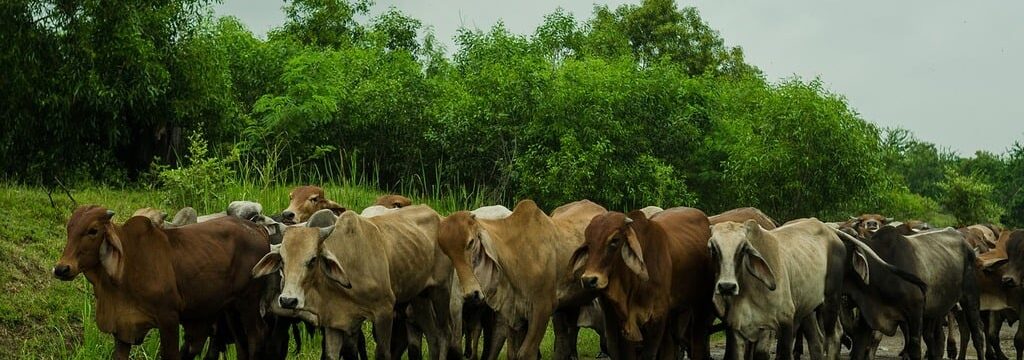Indeed, cattle farming has several negative environmental impacts. However, its impact can be mitigated to some extent. Cattle farming affects the environment in several ways:
Deforestation: Many cattle farms are established by clearing forested land. As grazing land is necessary for cattle farming to provide feed, deforestation occurs, leading to increased carbon emissions. This has consequences such as biodiversity imbalances, as many species rely on forested areas for habitat and sustenance
Water Usage and Pollution: Cattle farming requires a significant amount of water for management, and water sources can become polluted with animal waste. On average, each cow produces 12-62 kg of manure per day, which contains nitrogen and contributes to air and water pollution in the surrounding environment.
Overuse of Antibiotics: Antibiotics are sometimes used in cattle farming to prevent diseases and promote animal health. However, overuse of antibiotics can lead to negative consequences, including potential health risks to consumers of beef and the development of antibiotic-resistant bacteria, posing a threat to human health.
Global Warming: Methane and nitrous oxide are produced during enteric fermentation in the digestive process of cattle, primarily due to the activity of rumen bacteria. These greenhouse gas emissions contribute to global warming and climate change.
However, the environmental impact of cattle farming can be mitigated through practices such as:
- Reforestation on alternative lands to offset deforestation.
- Re-using waste as fertilizer to reduce pollution and improve soil health.
- Generating energy and electricity from biogas can have positive environmental effects.
By implementing these practices and adopting sustainable farming methods, cattle farming can minimize its environmental footprint and move towards more environmentally friendly practices.


Leave A Comment